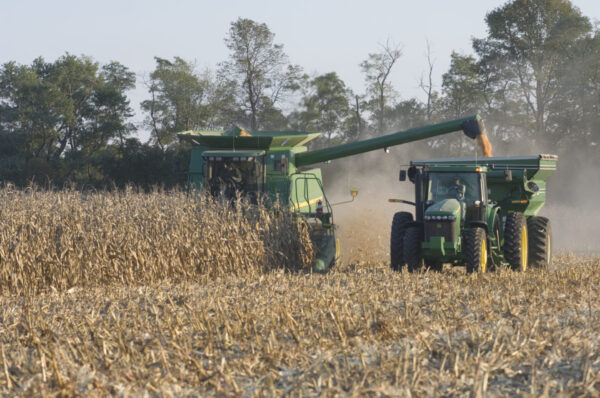SIOUX FALLS, S.D. – Don’t hold your breath that Congress will get a new Farm Bill passed anytime soon.
U.S. Sen. John Thune gave that warning this week when asked about ongoing negotiations taking place on Capitol Hill on new agriculture-related legislation traditionally adopted every five years by the U.S. House of Representatives and Senate.
And while gridlock in the nation’s capital is not novel — particularly with large-scale legislative packages like the quinquennial Farm Bill — the Murdo native said during a stop in downtown Sioux Falls Thursday that slow progress toward passing a Farm Bill isn’t about agriculture anymore.
“Typically in Farm Bills, what bogs them down is disagreements between regions of the country over different commodities,” Thune told attendees of a luncheon hosted by the Greater Sioux Falls Area Chamber of Commerce. “I’ve never seen it move this slow before where there is this much disagreement.”
The U.S. Department of Agriculture right now is operating under a one-year Farm Bill adopted by Congress in 2018. Though it had been set to expire in September 2023, lawmakers authorized a one-year extension last year when they were unable to find compromise.
A year later, the differences remain.
Thune, the second-highest-ranking Republican in the Senate and the favorite to be the party’s next majority leader, said there is not disagreement on about 80 percent of what’s spent in the Farm Bill, primarily what makes up the U.S. Department of Agriculture’s nutrition programs.
But where legislators would traditionally jockey over the other 20 percent — whether corn, wheat, and soybeans or rice, peanuts, and cotton, for instance, should get a larger share of benefits and protections in the Farm Bill — this time around, climate change initiatives backed by Democrats and funding strategies pushed by the GOP are at the center of Farm Bill divides.
Though some legislation has been introduced in the U.S. House — Congressman Dusty Johnson recently saw a proposal moved out of committee but is still waiting for action on the House floor — the Senate has not yet seen a proposal.
“This time it’s gotten more political,” he said.
Specifically, Republicans in the Beltway want to see a portion of funds appropriated in the Inflation Reduction Act used to fund agricultural safety-net programs that operate under the Farm Bill, he said.
“This ought to be about farms and ranchers and production agriculture and less about climate and that some of the dollars that were set aside — which are conservation dollars — so that we can rightfully ensure that those safety-net programs are funded.”
Thune predicted the 2018 Farm Bill would be extended another year.













